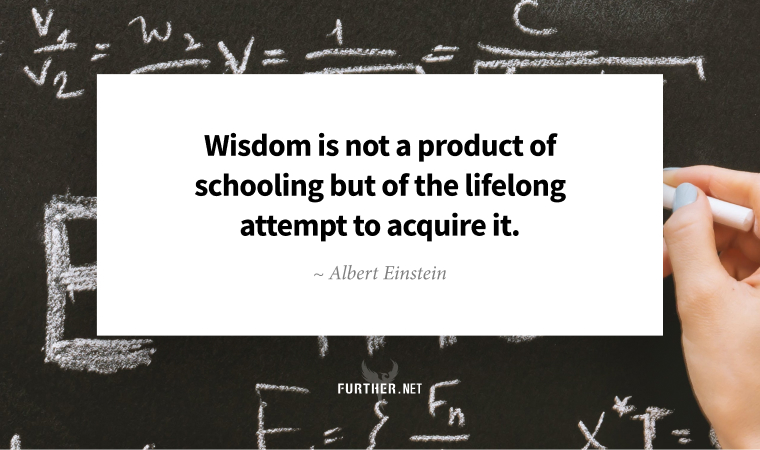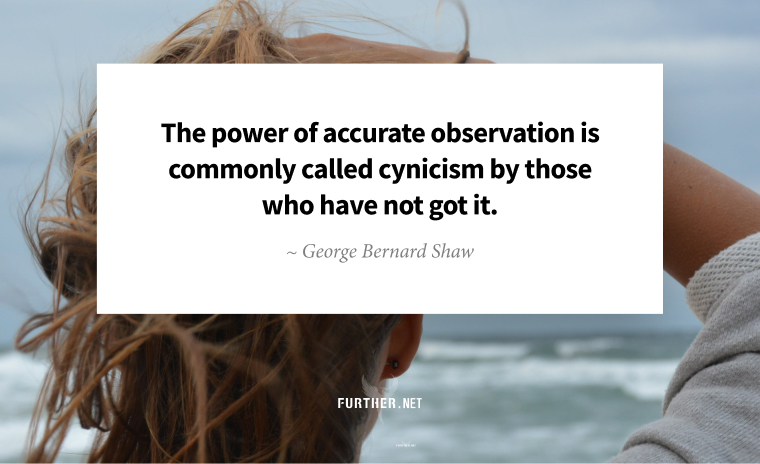
The media mythos around the young innovative entrepreneur turns out to be … just a myth.
We already know that the average age of a successful startup founder is 45. But what may surprise you is that entrepreneurs over the age of 50 are more innovative than their younger counterparts.
Whether you’re driven by radical innovation or not, the point is that you’re more likely to succeed with your own business at midlife. And by that I mean more likely to succeed than a younger person:
We find that age indeed predicts success, and sharply, but in the opposite way that many propose. The highest success rates in entrepreneurship come from founders in middle age and beyond.
As a Further reader, I hope you’re doing what it takes to live a long, healthy life. Because there’s a whole lot more living to do from here.
Sure, we may be the first generation that can’t retire en masse in our 60s. And that’s why so many of us are starting our own things, because the game isn’t over – but the way we play it won’t be the same.
With your own business, you get three benefits that a job can never give you:
- No One Can Lay You Off: We already know that once you’re over 50, odds are the decision to leave your job won’t be yours. Take away the power someone else has to wreck your life.
- Create Your Own Pension: Yes, you’ll keep working, but with your own business, no one says you have to personally run it. Create your own leverage so you can draw a salary and dividends while someone you train deals with the day-to-day.
- Cash Out Retirement: While I think the previous option is the smart move, it’s still possible to sell your business when the time is right, and truly enjoy your “golden years” without outliving your money.
Generation X is the most entrepreneurial generation of all. So if you’re feeling inclined to start your own thing, never listen to anyone who tells you you’re too old.
Especially your kids.
Further Exploration:
Ditching the Young Entrepreneur Myth: Research Shows Over-50s are the More Radical Innovators (The Conversation)
Keep going-
P.S. New to Further? Join us here.
What’s My Age Again?
You may be younger or older than your chronological age, meaning your biological age. Biological aging may be slowed significantly when people adopt eight specific behaviors, says a report from Columbia University researchers.
8 Ways to Slow Your Biological Aging (NBC News)
Feast Strategy
Thanksgiving is coming up, and if you’re doing the whole fitness and nutrition thing, the idea of a massive meal might be stressing you out. Or maybe you just want some guilt-free joy. Here are some great guidelines on how to glide through the gluttony.
What to Do Before, During, and After a Big Meal (Mark’s Daily Apple)
The Wisdom Workforce
If you’re not looking to start your own business, you may still be in luck if you want to keep working past traditional retirement age. Thanks to falling birthrates and people living longer, healthier lives, employers are waking up to the need to retain and court older workers due to a perpetual labor shortage.
Thinking Of Retiring? In This Economy, Companies Are Incentivizing Older Workers To Stay (Forbes)
Traveling With Yourself
I’ve been fortunate to have many amazing travel experiences with family and friends, and yet, some of my most amazing adventures have been while venturing abroad alone. If you’re contemplating a solo trip, try these tips.
The Ultimate Guide to Planning Your First Solo Trip Abroad (The Travel Magazine)
The Secret to Healthy Aging

By Trudi Roth
What would you do if I told you the secret to healthy aging is something you already possess? You don’t have to spend a dime, submit to medical interventions, or change your routine.
To be clear, I’m not talking about the keys to healthy living, which we continuously discuss here at Further: eat well, sleep, exercise, relax, repeat. Hopefully, you’ve got all that down by now.
I’m specifically talking about embracing the transition to older adulthood. All you have to do is remember your birthright: our generation’s signature cynicism.
This is especially important as the siren songs of the various aging industrial complexes — wellness and menopause, for example — tempt us with snake-oil promises of eternal youth as we move through our 50s and beyond.
Let’s Get Cynical
First, let’s get clear about what effective cynicism is. It’s not the modern take, which involves craven negativity and moral bankruptcy and leads to poor health and social ostracization. The helpful kind of cynicism stems from ancient Greece and involves questioning convention to become wiser and more content.
As happiness expert Arthur C. Brooks explains:
The ancient cynics strove to live by a set of principles characterized by mindfulness, detachment from worldly cravings, the radical equality of all people, and healthy living.
This becomes infinitely easier when you realize society’s definition of desirability is impossible to keep up with. Witness the rise of “prejuvenation,” in which 20-somethings are outspending everyone else on anti-aging skin-care products.
If that ain’t enough to make you cynical, nothing will.
Wisdom for the Ages
Several of the cynics’ concepts become naturally easier over time as we move past the mad scramble to acquire things in the first half of life (knowledge, possessions, partners, kids, etc.) into a calmer, more purposeful place. As Anne Lamott wrote:
The perfectionism that had run me ragged and has kept me scared and wired my whole life has abated … You have bigger fish to fry than your saggy butt.
All the more reason to practice a purer strain of cynicism, including:
- Eudaimonia (“satisfaction”): Recognize happiness is an inside job and let go of thinking anything “out there” — money, power, stuff — delivers true contentment.
- Askesis (“discipline”): Halt your habits of distraction and dissociation. Bonus: hormonal fluctuations might make it easier if you’re like me and can’t sleep if you drink too much alcohol.
- Autarkeia (“self-sufficiency”): Stop seeking validation from others, as conventional standards are lame anyway. (See “prejuvenation” above.)
- Kosmopolites (“cosmopolitanism”): Focus on seeing others as equal and worthy and drop the “compare and despair” gig once and for all.
In other words, the more you question authority and convention, the better off you are. Not that I’m telling you something you didn’t already know, duh.
Live Like the Ancient Cynics (The Atlantic, gift article)
further: flashback

Guns N’ Roses – November Rain
Use Your Illusion I, 1991
The video for November Rain is the first of an unofficial trilogy (followed by “Don’t Cry” and “Estranged”) based on the the short story “Without You” by Del James. The song was also the longest ever to make the top 10 of the Billboard Hot 100, until Taylor Swift’s extended re-recording of “All Too Well” in 2021. (YouTube)
further: sharing
Enjoy this issue? Please forward this email to a friend or share on social media.
Thank you for sharing Further!
